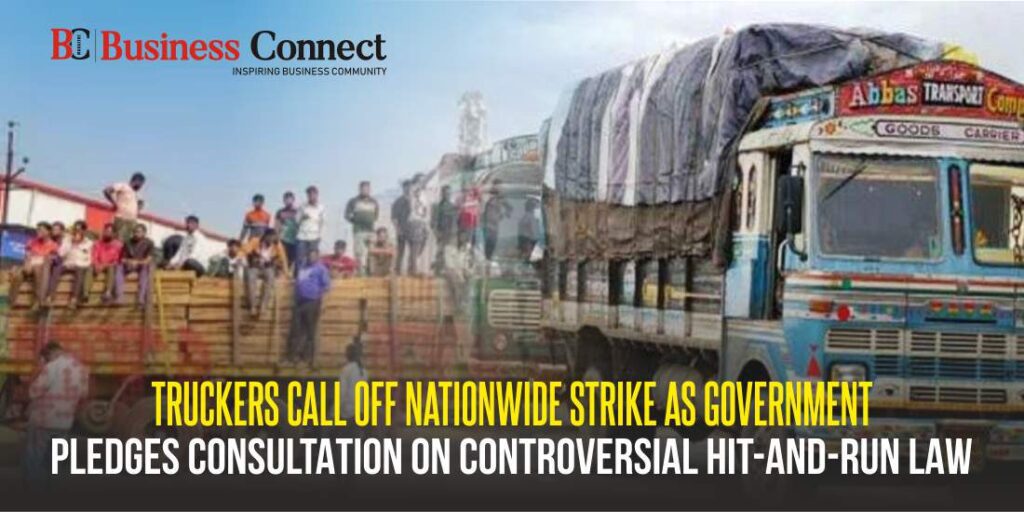Truckers Call Off Nationwide Strike as Government Pledges Consultation on Controversial Hit-and-Run Law
Written by Sanjay Kumar
News Highlights
- Truckers’ Strike Ends as Government Promises Consultation on Hit-and-Run Law:
- Nationwide Protests Quelled Following Assurance of Discussions with AIMTC:
- Concerns Persist Over Stringent Penalties in Proposed Hit-and-Run Law: Experts Caution Against Potential Misuse.
In a significant development, the countrywide truckers’ strike, which had sent shockwaves across multiple states, has been called off following assurances from the government. The All-India Motor Transport Congress (AIMTC) decided to end the agitation after prolonged discussions with government officials.
Union Home Secretary Ajay Bhalla, addressing the media this evening, emphasized the government’s commitment to consulting with stakeholders before implementing the contentious law against hit-and-run incidents. He stated, “The new rule, Bharatiya Nyaya Samhita 106/2, has not been implemented yet. Before its implementation, we will engage in discussions with All India Motor Transport Congress representatives and make a decision.”
Bal Malkit, the chairman of AIMTC’s core committee, reiterated that the new laws, particularly Section 106(2) of Bharatiya Nyaya Samhita (BNS), aimed at replacing the colonial-era Indian Penal Code, have not been enforced. He confirmed that implementation would only proceed after thorough consultations with the All India Transport Congress.
The nationwide protests were sparked by concerns over the stringent penalties outlined in BNS for hit-and-run cases. The proposed law suggests a maximum penalty of up to 10 years in jail and a fine of ₹7 lakh, significantly higher than the existing punishment of a two-year jail term and a lighter fine. The severity of the penalties raised questions and apprehensions among truckers, cab drivers, and others operating commercial vehicles.
The geographical spread of the protests included states such as Jammu and Kashmir, Bihar, Punjab, Maharashtra, Madhya Pradesh, Himachal Pradesh, and Chhattisgarh, causing anxiety about potential shortages of fuel and essential items.
While the government’s assurance has brought an end to the immediate crisis, concerns remain about the potential misuse of the law, the challenges associated with reporting accidents promptly, and the admissibility of evidence in case of disputes. Experts have cautioned against overlooking these complexities in the enforcement of the proposed hit-and-run law.
The coming days are expected to witness further discussions and scrutiny as stakeholders navigate the delicate balance between road safety and the practical challenges faced by those in the transportation sector.



